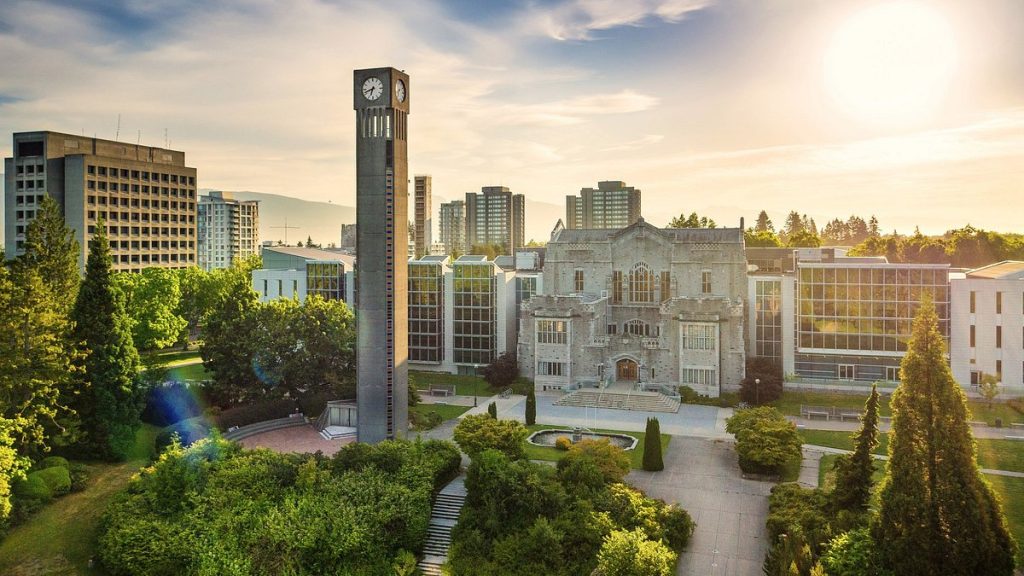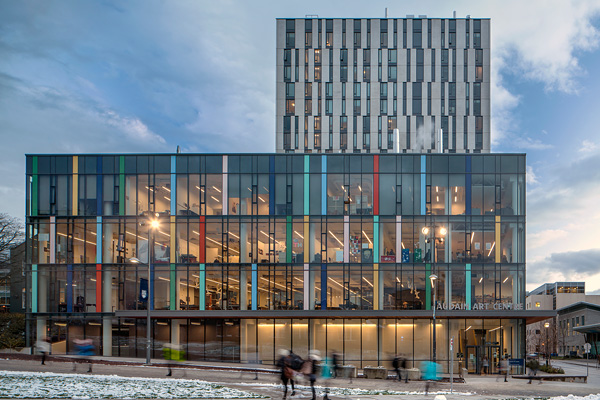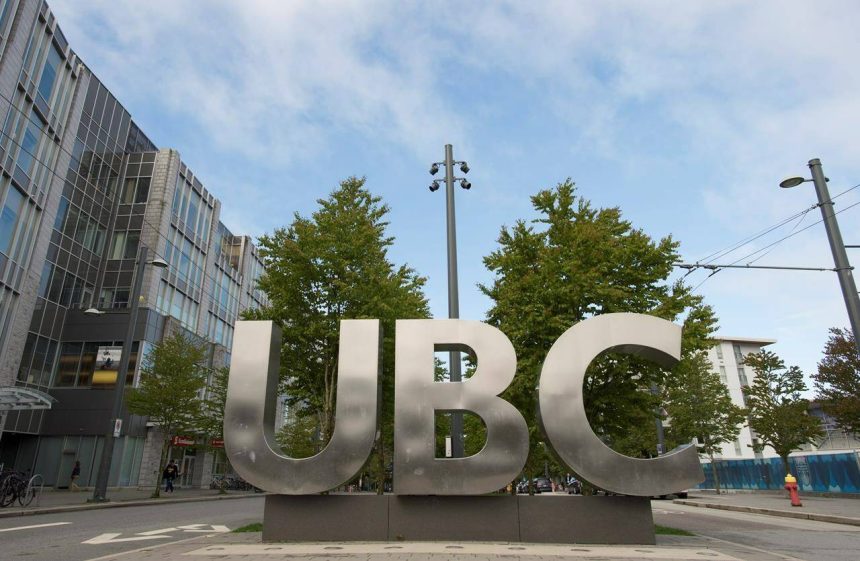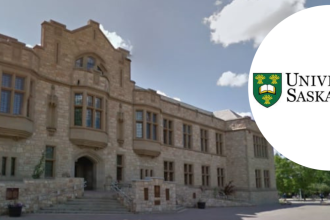You will agree that enrolling in a distinguished educational institution brings many benefits. Students enrolled in these institutions can acquire knowledge from proficient experts in various fields, gain access to exclusive industries such as technology, consulting, and finance, and be subject to high academic standards. Furthermore, they can avail themselves of top-notch resources and facilities, such as well-equipped libraries and research centers. Establishing connections with influential people also creates several opportunities for the future. Ultimately, attending a prestigious institution can open doors to employment opportunities with top-notch companies. Today we will discuss how to get admission into one top university in Canada, the University of British Columbia.
Overview of the University of British Columbia
The University of British Columbia (UBC) is a prestigious public research university near Vancouver and Kelowna, British Columbia. It is consistently ranked among the top 20 state universities worldwide and has a rich history dating back to 1908, making it the oldest university in British Columbia. UBC boasts a diverse and competitive student body, and admission can be challenging. Additionally, UBC is renowned for its world-class research facilities, allowing graduate students to conduct research in various fields and receive rigorous training for numerous career paths.
The University of British Columbia has 13 faculties and 18 schools that offer different academic programs and courses. On the university website, you can find a list of all the faculties and schools and a description of what they do. Here are a few examples of faculties and schools:
Faculty of Applied Science; Faculty of Arts; Sauder School of Business; Faculty of Dentistry; Faculty of Education; Faculty of Forestry; Faculty of Land and Food Systems; School of Community and Regional Planning; Faculty of Medicine; Faculty of Pharmaceutical Sciences; School of Audiology and Speech Sciences; School of Architecture and Landscape Architecture; School of Journalism, Writing, and Media; School of Kinesiology.

The significance of higher education and the advantages of attending an institution such as the University of British Columbia
Attending a school like the University of British Columbia can benefit your academic, personal, and professional growth. Among the potential benefits are:
You can access various degree programs and courses across multiple disciplines and faculties and learn from world-class faculty and researchers. UBC makes you experience a sustainable and safe campus environment with a moderate climate and a diverse community. You can gain valuable international experience and cultural competence by studying in Canada, a multicultural and welcoming country. You can increase your employment opportunities and transversal skills by studying abroad, as employers value candidates with global perspectives, language skills, and intercultural awareness.
Of course, attending a university such as UBC also presents challenges, such as adjusting to a new culture, managing your expenditures, and balancing your academic and personal obligations. However, these obstacles can also serve as learning and development opportunities. Ultimately, the benefits of attending a school like UBC depend on your objectives, preferences, and circumstances.
Getting Admission to The University of British Columbia
Eligibility requirements
As an international student, you must satisfy UBC’s general admission requirements, English Language Admission Standard, and country-specific requirements for your secondary or postsecondary education. The requirements vary based on the degree and institution you are enrolling in.
- Academic requirements:
You must satisfy your country’s academic and English language requirements, which may include taking standardized examinations or completing a recognized curriculum if you are in high school.
University and college transfer students: You must have completed at least 24 transferable credits at an accredited postsecondary institution with a minimum grade point average of at least 70%.
Graduate students: You must possess a bachelor’s degree and a master’s degree (or equivalent) in a relevant subject with a cumulative GPA of at least 65 percent. Depending on the program, you may also be required to submit standardized test scores, such as GMAT or GRE.
- Language requirements: You must demonstrate a minimum level of English proficiency by completing one of the accepted examinations, such as the TOEFL, IELTS, or Duolingo. The minimum score varies based on the test, degree, and institution you are applying to.
It’s essential to remember that meeting the minimum requirements doesn’t guarantee admission to UBC. The admissions process is highly competitive and selective. Additionally, depending on the program you are applying to, there may be additional requirements or deadlines that you need to fulfill.

The admission process.
The admissions process for international pupils at the University of British Columbia consists of the following steps:
- Explore UBC’s graduate programs: You can peruse the A-Z listing, academic divisions, and specializations or search for the program that aligns with your interests and objectives. See the graduate programs at UBC.
- Determine your eligibility: You must satisfy the minimum academic and English language requirements for UBC and the program-specific requirements. See verification of eligibility.
- Meet deadlines: You must submit your online application and all required materials by the program’s deadlines. Check the application deadlines attentively, as they vary by program and application intake. See application deadlines for programs.
- Apply online: To apply, please create an account and complete the online application form, providing your personal information, academic history, references, and supporting documents. A non-refundable application fee of CAD 106.00 for domestic applicants and CAD 168.25 for international applicants must also be paid. Apply online.
- See your application status. Your program will evaluate your application and make an admission decision based on your academic performance, test scores, and other factors.
- Once a decision has been made, you will be notified via email. Please ensure that you accept the offer and make any required deposits before the deadline mentioned in your offer letter. Keep an eye out for updates regarding your admission status.
FAQs
Where in British Columbia is the UBC campus located?
The University of British Columbia has two campuses, one in Vancouver and one in Kelowna. The main campus is located in Vancouver, British Columbia, Canada.
What are the admission requirements for UBC?
The requirements for admission to UBC differ depending on the program for which you are enrolling. You must possess a secondary school diploma with prerequisite course requirements. Additionally, you must submit your grades, complete an application, and submit any additional documentation required by the program of your choice.
How much does it cost to attend UBC?
The expenses for attending UBC are influenced by several factors, such as your program, whether you are an undergraduate or graduate student and your domicile status. International undergraduate students can expect estimated tuition fees ranging from $38,233 to $48,665 per year, while Canadian undergraduate students typically pay $5,000 to $11,000 annually. Graduate students’ tuition fees differ according to their program but generally range from $5,000 to $31,000 annually.
What programs does UBC offer?
UBC has a wide range of classes in many different fields. Engineering, computer science, psychology, economics, political science, biology, and nursing are popular fields of study. UBC also has medical, dentistry, law, and business schools.
Does UBC offer scholarships or financial aid?
Yes, UBC gives grants and financial help to students from domestic students and other countries. Different grants are offered based on academic performance, financial need, and other factors. UBC also has work-study programs and student loans to help pay for schooling.
What are the housing options for students at UBC?
UBC offers a variety of housing options for students, including on-campus residences, family housing, and off-campus housing. On-campus residences are available for undergraduate and graduate students, offering different accommodations, such as dorm-style rooms and apartment-style living spaces.
What sports and recreational activities are available at UBC?
UBC has a wide range of sports and recreational activities available for students. The university has numerous sports facilities, including fitness centers, swimming pools, indoor and outdoor tracks, and sports fields. UBC also offers a variety of intramural sports teams, fitness classes, and outdoor adventure programs.
What is the reputation of UBC?
UBC has earned a reputation for its exceptional academic standards and significant research contributions, consistently placing among the top universities in Canada. Its vital programs in various fields have gained international recognition. UBC’s faculty, alums, and students have garnered numerous accolades and awards in various disciplines.














